How Pop Culture and Gambling Became the Perfect Combination
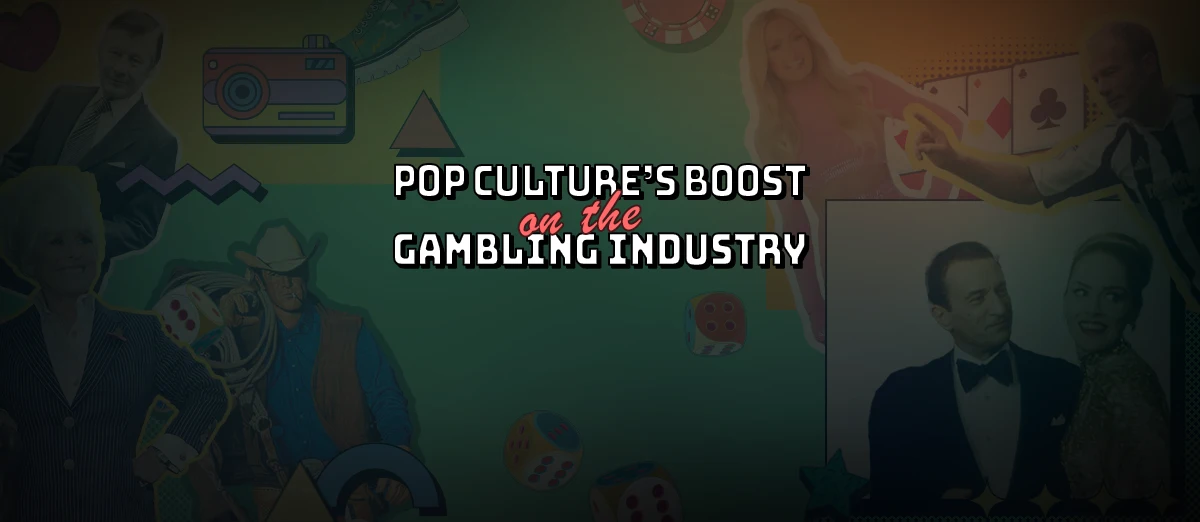
Popular culture, often referred to as ‘pop culture,’ plays a significant role in shaping and driving the growth of various trends and industries. One industry that has seen remarkable expansion in recent years is gambling, particularly in specific niches. Over the decades, many forms of gambling and sports betting have been prominently featured and influenced by pop culture.
In the earliest days, movies were a big driver of this, especially famous titles such as the early 90‘s hit, ‘Casino’, starring Robert De Niro and Sharon Stone, which invariably helped the gambling industry in the resorts of Las Vegas and Atlantic City. It is also worth noting that gangster movies such as ‘The Godfather’ likely boosted tourism in Las Vegas, with some of the trilogy set in the resort, with the movies being filmed at a time (1970s) when ‘Sin City’ was still in its infancy.
These were arguably the earliest, most effective forms of popular culture that had an influence on the growth of the gambling industry, especially considering that technology had not evolved to the levels that it is at now. Furthermore, it is unlikely that it was only the US that benefitted from the making of these movies - afterall, they had a global audience, being especially popular in Europe, where casinos were just beginning to emerge into the spotlight.
Did Pop Culture Affect the Growth of the UK Gambling Market?
Gambling in the UK has always been a particularly popular pastime, regardless of the type of entertainment such as slots, table games, bingo or even sports betting.
It is perhaps hard to imagine, but it was in the 1950s when the game of bingo exploded in the UK and it was the famous television personality Eric Morley, who also owned a large chain of dance halls, who was key to the promotion of gambling by way of his company Mecca Bingo, under the Mecca Leisure Group. For the best part of four decades, bingo dominated the UK as essentially the main gambling pastime, though sports betting was also a big part of the industry via traditional betting shops.
Indeed, the World Cup in 1966 effectively helped one of the country's major bookmakers come to life, and the story behind how this happened was key to promoting it. Two brothers, Fred and Peter Done, placed an incredible £10,000 bet on England to win the World Cup, and from their winnings, they founded Betfred. The story behind this remarkable success was widely publicised at the time and - essentially being a major part of popular culture and it helped the brand to grow significantly.
Behavioral habits at the time were also key to the growth of the betting industry. Certainly, the ‘Marlboro Man’ became somewhat of a mythical figure, though was a key influence for the cigarette brand, which sponsored numerous sporting events hosted in the country that attracted a lot of betting interest. Following the beginning of the century, online gambling really started to take off, aided in particular, by the launch of many UK online casinos. This is where these brands really came into their own, utilizing clever sponsorship techniques, whether this was through television commercials or adverts led by famous brand ambassadors like actors, actresses or professional sports stars.
Arguably the most famous actress to have advertised the gambling industry in the UK over the last couple of decades is iconic soap star Barbara Windsor, who was the face of online bingo brand Jackpotjoy. Even prior to this, she had made her name playing the role of ‘Peggy Mitchell’ in the long-running British soap ‘Eastenders’, so she was very well known by the masses, many of whom were the ideal target market for the bingo brand.
It quickly became evident that gambling enthusiasts in the UK were fans of creative, pop-themed gambling advertisements by brands and some even took it to the next level. Irish bookmaker PaddyPower rose to fame for its outrageously controversial advertisements that really diversified opinion, though targeted the market of the working-middle class, educated male between 20 and 50 years of age.
Some of their ads over the years have tapped into different parts of popular culture in the UK, effectively, sometimes embracing a satirical approach to the British way of life that many people were able to relate to. In 2015, Coral used another tool to mix pop culture and sports betting by hiring famous retired footballer and television pundit, Alan Shearer. His mission was to help promote its brand by frequently contributing his opinion via Coral’s blog, boosting readership and awareness.
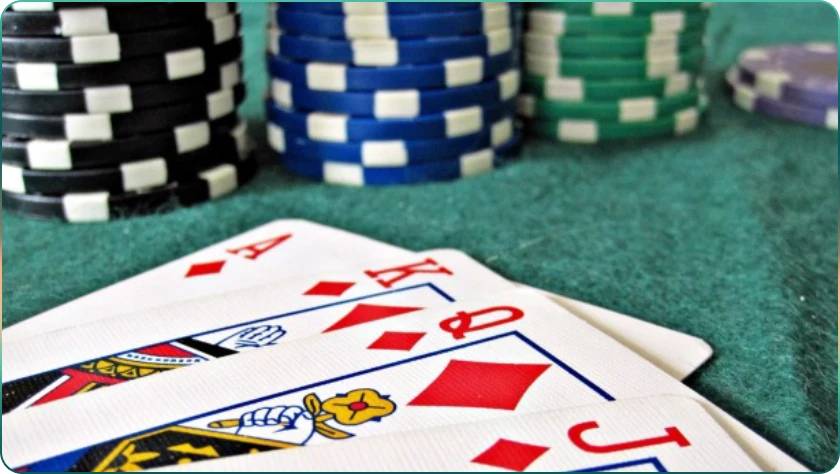
How Countries Leverage Popular Culture to Promote Gambling
There are also a number of other countries that embrace pop culture and the gambling industry collaborating. Some methods are so simple and effective that they are almost subconscious. In Australia, for example, there are slot manufacturers that play on the typical ‘Aussie’ lifestyle, and at some beach resorts, albeit in the beach bars, it is common to find ‘Pokies’, otherwise known as slot machines.
Also, the sport of horse racing is particularly big in Australia and attracts 10s of thousands of people per year to various events across the country. As a result, it is easily possible to see these events being sponsored by gambling brands - while most people to have a bet at a horse racing event, there are some who do not initially have the intention to, though upon seeing just basic branding that they are attracted to, could well be susceptible to a change of mind.
Argentina is one country that has recently had gambling bills passed and the industry there is still relatively in its infancy, though many of the big international brands do have licenses to operate there. As a result, most of them have capitalized on something that is effectively ingrained in Argentinian folklore - essentially a part of many an Argentine’s religion. It has seen many gambling operators partner with top football clubs as a way of promoting their brand and this has been done to great effect.
Gambling companies in Austria have also strategically taken advantage of something that is embedded in a lot of Austrian’s blood. Every year, arguably the biggest event of the sporting calendar in the country is the Skiing World Cup, and the country hosts one of the most prestigious races in the sport in the resort of Kitzbühel. This attracts major television audiences across Europe, in addition to thousands more spectators on site. It has been common over the years to see some form of gambling brand sponsorship, with this event and a key part of Austrian popular culture, representing a great opportunity for operators to become noticed.
Over the last four years, many states in the US have begun to legalize online gambling, which has proven to be a very popular decision and generates significant revenues. As a result of this, operators were quick to realize how much attention the American people paid to celebrity influencers, even prompting CCPA to issue an advisory to influencers promoting gambling.
One super star who has proven this tactic to be effective is the popular socialite and heiress Paris Hilton. She has teamed up with the gambling brand WOW Vegas, which simultaneously gained the attention of her millions of social media followers after her exploits over the years.
Following the announcement of the agreement, she commented to her audience: "As someone who's always embraced excitement and innovation, I'm thrilled to team up with WOW Vegas. Together, we're enhancing the social casino experience, blending the glamour of Vegas with the thrill of gaming. Get ready to immerse yourself in a world of fun and excitement like never before!"
Meanwhile, Christian Colton, the Co-founder of WOW Vegas added: "Our players can enjoy the thrill of gameplay without the need for purchases or downloads, emphasizing the brand's commitment to providing a fun and inclusive gaming community."
Culture, Casinos, and Clever Marketing
One thing that is obvious is that popular culture has been a key component in the growth of the gambling industry over the years and brands have cleverly used what they have available in order to attract new and existing customers.
Regardless of which aspect of pop culture a gambling brand uses, the industry has found a clever way of communicating its message to appropriate audiences.
As technology continues to develop and the gambling industry becomes even bigger, as more countries become regulated, it is likely that we will see even more sophisticated ways in which brands make use of different elements of popular culture to promote their message.

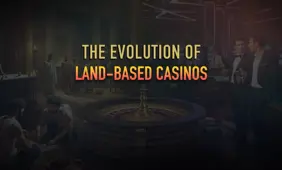
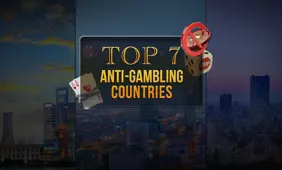
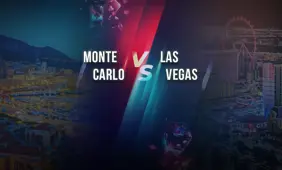
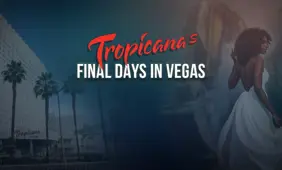
Review this Blog
Leave a Comment
User Comments
comments for How Pop Culture and Gambling Became the Perfect Combination